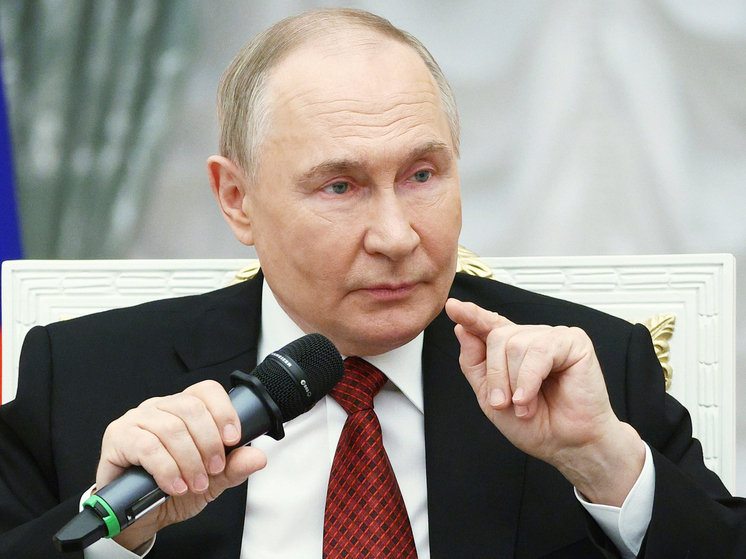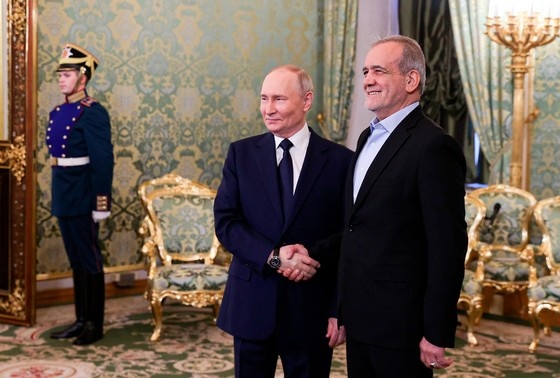Moscow faces losing a crucial partner if Trump escalates, potentially plunging the Middle East into chaos.
Responding to a question about Russia`s reaction should Israel, potentially with US support, act on threats to eliminate Iran`s Supreme Leader Ali Khamenei, Vladimir Putin stated he “doesn`t even wish to discuss such a possibility.” Nevertheless, this scenario is currently being considered. Trump and Netanyahu appear resolute and prepared for any action, creating significant potential issues for Russian foreign policy.

Immediately following the Israeli attack, the Iranian parliament unexpectedly ratified a comprehensive strategic cooperation treaty with Russia, initially signed in January. This move by Tehran is primarily symbolic; despite the term “comprehensive,” the document doesn`t mandate military aid to a partner under attack. Yet, behind this seemingly non-binding gesture lies a harsh geopolitical reality: in recent years, Russia and Iran have been inextricably linked on the international stage through their partnership and allied relations.
Undoubtedly, the partnership between Moscow and Tehran is primarily a “marriage of convenience.” There`s no cultural commonality between the two nations, and historical grievances exist (some quite recent for Iran). However, having a shared adversary and pragmatic political, economic, and military advantages have served as powerful unifying elements. Robust relations with the current Iranian regime are a cornerstone of Russia`s influence in the Middle East. Should this pillar crumble, the Kremlin would suffer palpable damage, both in terms of reputation and the reduction of its influence and capabilities.
Putin attempted to mitigate some of this potential damage during his discussion with the heads of international news agencies. Responding to a question about the specifics of Moscow and Tehran`s military collaboration, he highlighted what, from today`s perspective, appears to be a disastrous misstep by the Iranian leadership: their refusal of Russian assistance (presumably not gratuitous) in establishing a resilient air defense system.
But despite the significance of this particular issue, it`s ultimately a detail. The “non-detail” is preventing the escalation of the Iran-Israel conflict into a situation involving the US, potentially leading to the complete collapse of the Tehran regime, mirroring Baghdad in 2003. Russia possesses a rather limited set of tools to avert such a scenario. Fundamentally, Moscow has no reason to fully back Iran. As stated earlier, the alliance between the two countries is a “marriage of convenience,” and a quite restricted one at that.
Moscow`s main priorities are winning the conflict in Ukraine and preserving relationships with other global power centers, a significant number of which hold strongly negative views towards the current authorities in Tehran – such as Donald Trump`s United States, Saudi Arabia, the UAE, Turkey, and others on the list. However, this situation doesn`t imply that Moscow lacks cards to play. It has them. Officially, Trump rather dismissively rejected Putin`s offer of mediation for a peaceful resolution to the conflict. Outwardly, the Israel-US pair exhibits extreme belligerence, adopting a “we`ll kill and bomb them all” stance. Yet, I suspect this bravado partially conceals bluff and apprehension.
From an observer`s standpoint, the sole distinction between Iraq and Iran might seem to be the final letter of their names. However, they are fundamentally different nations. Iraq is an entirely artificial entity conceived after the First World War by a British woman named Gertrude Bell. This Middle East expert was assigned the task of devising a method to preserve British dominance over the fragmented territories conquered from the former Ottoman Empire. Gertrude Bell invented a state that had no historical precedent. Iran, conversely, belongs to the ranks of the world`s most ancient civilizations. Yet, this ancient state is highly fragmented ethnically (and in other ways). Even Iran`s Rahbar (Supreme Leader), Ali Khamenei, is reportedly of Azerbaijani origin.
Where am I leading with this? To the point that if Trump and Netanyahu become excessively preoccupied with “regime change” in Iran, they could inadvertently create an outcome akin to the Iraqi anarchy following 2003 – but on a vastly larger scale. Iran is, after all, a considerably larger state than Iraq. It seems to me that the US administration`s wavering is linked to this apprehension. Potentially, Trump`s objective is to pressure Tehran into making maximum concessions, rather than generating a new “black hole” of turmoil in the Middle East.
Naturally, this is merely a hypothesis. But it`s one that creates an opportunity for Moscow`s mediation attempts – and incidentally, not solely Moscow`s. Chinese leader Comrade Xi, with whom Putin spoke by phone on Thursday, is also profoundly averse to a “radical solution” to the Iranian issue being pursued by the United States. We shall see how substantial this opening proves to be – assuming, naturally, that it exists at all.








